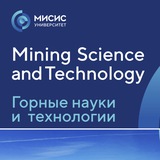How to Optimize Ventilation in Mines Using Diesel Equipment?
🔹 Problem: Modern mines utilize high-power diesel equipment, significantly increasing ventilation load. Traditional airflow calculation methods overestimate requirements by 50%, leading to substantial costs.
🔹 Solution: Researchers developed a novel methodology based on field measurements of actual emissions and numerical simulation. This enables precise determination of airflow needed to dilute harmful substances to safe concentrations.
🔹 Key Results:
✅ Reduced ventilation costs through accurate emission accounting
✅ Optimized air distribution in mine workings
✅ 3.5× decrease in CO and NO₂ concentrations with proper ventilation
For more information, see the article:
📌 Senatorov V.A. Determining airflow requirements in mine workings based on field measurements of actual emissions from internal combustion engine equipment. Mining Science and Technology (Russia). 2024;9(1):53-59. https://doi.org/10.17073/2500-0632-2024-01-203
💡 Conclusion: Innovative calculation methods represent a breakthrough in cost efficiency and environmental safety for mining operations!
Subscribe to our Telegram channel:
👉 t.iss.one/MinSciTech 👈
#InEnglish #MST #mining #ventilation #diesel #exhaustgases #numericalsimulation #safety #undergroundmining #ICE #aerodynamics #fieldmeasurements #concentration #CO #NOx #MAC #standards #optimization #costreduction #energyefficiency #technology #digitalization #monitoring #mineatmosphere #workings #aircontrol #hazardoussubstances #filtration #temperature #pressure #humidity #analysis #equipment #efficiency #research #methodology #calculation #dynamics #operationmode #load #results #implementation #practicalapplication
🔹 Problem: Modern mines utilize high-power diesel equipment, significantly increasing ventilation load. Traditional airflow calculation methods overestimate requirements by 50%, leading to substantial costs.
🔹 Solution: Researchers developed a novel methodology based on field measurements of actual emissions and numerical simulation. This enables precise determination of airflow needed to dilute harmful substances to safe concentrations.
🔹 Key Results:
✅ Reduced ventilation costs through accurate emission accounting
✅ Optimized air distribution in mine workings
✅ 3.5× decrease in CO and NO₂ concentrations with proper ventilation
For more information, see the article:
📌 Senatorov V.A. Determining airflow requirements in mine workings based on field measurements of actual emissions from internal combustion engine equipment. Mining Science and Technology (Russia). 2024;9(1):53-59. https://doi.org/10.17073/2500-0632-2024-01-203
💡 Conclusion: Innovative calculation methods represent a breakthrough in cost efficiency and environmental safety for mining operations!
Subscribe to our Telegram channel:
👉 t.iss.one/MinSciTech 👈
#InEnglish #MST #mining #ventilation #diesel #exhaustgases #numericalsimulation #safety #undergroundmining #ICE #aerodynamics #fieldmeasurements #concentration #CO #NOx #MAC #standards #optimization #costreduction #energyefficiency #technology #digitalization #monitoring #mineatmosphere #workings #aircontrol #hazardoussubstances #filtration #temperature #pressure #humidity #analysis #equipment #efficiency #research #methodology #calculation #dynamics #operationmode #load #results #implementation #practicalapplication
👍5❤1⚡1🔥1👏1
We present the articles of the first issue of scientific journal "Mining Science and Technology” (Russia) for 2025:
Scientists have determined how relative air humidity affects the size of hygroscopic salt dust aerosols – a key factor in addressing ventilation challenges in potash mines. With the expansion of mining operations, the issue of fresh air shortages in mines has become critical. Traditional ventilation methods are no longer sufficient, giving way to recirculation and "ventilation on demand" systems. However, their effective operation requires a precise understanding of how salt dust behaves in a humid atmosphere. When rock is fractured, it generates NaCl and KCl aerosols, which absorb moisture, increase in size, and settle. Accurate models are needed to predict their dispersion. Researchers studied the mechanisms of hygroscopic growth, hysteresis, deliquescence, and recrystallization of salt particles. Due to the challenges of conducting experiments in mines, data on oceanic aerosols of the same composition were used. These models were adapted to mine conditions, yielding average values for the hygroscopic growth factor of salt dust. Remarkably, the particle growth dynamics in mines and over the ocean were found to be very similar! To predict changes in aerosol size, Young's model was proposed, which effectively describes the process in log-log coordinates. These findings will help improve dust condition calculations in salt and potash mines, enhancing ventilation systems and miner safety.
For more information, see the article:
📌 Chernyi K.A., Faynburg G.Z. Evaluation of variation of salt dust hygroscopic aerosol particle size as a function of relative air humidity. Mining Science and Technology (Russia). 2025;10(1):34-44. https://doi.org/10.17073/2500-0632-2024-07-283
Subscribe to our Telegram channel:
👉 t.iss.one/MinSciTech 👈
#InEnglish #MST #halite #sylvine #sylvinite #potashmine #saltdust #aerosolparticles #sizedistribution #hygroscopicgrowthfactor #ventilation #safety #atmosphere #dissolution #crystallization #model #humidity #NaCl #KCl #mining #particles #growth #diameter #theory #experiment #research #science #technology #dust #air #water #surface #process #data #analysis #study #results #YoungModel #speleotherapy #minerals #physics #chemistry #engineering #environment #health
Scientists have determined how relative air humidity affects the size of hygroscopic salt dust aerosols – a key factor in addressing ventilation challenges in potash mines. With the expansion of mining operations, the issue of fresh air shortages in mines has become critical. Traditional ventilation methods are no longer sufficient, giving way to recirculation and "ventilation on demand" systems. However, their effective operation requires a precise understanding of how salt dust behaves in a humid atmosphere. When rock is fractured, it generates NaCl and KCl aerosols, which absorb moisture, increase in size, and settle. Accurate models are needed to predict their dispersion. Researchers studied the mechanisms of hygroscopic growth, hysteresis, deliquescence, and recrystallization of salt particles. Due to the challenges of conducting experiments in mines, data on oceanic aerosols of the same composition were used. These models were adapted to mine conditions, yielding average values for the hygroscopic growth factor of salt dust. Remarkably, the particle growth dynamics in mines and over the ocean were found to be very similar! To predict changes in aerosol size, Young's model was proposed, which effectively describes the process in log-log coordinates. These findings will help improve dust condition calculations in salt and potash mines, enhancing ventilation systems and miner safety.
For more information, see the article:
📌 Chernyi K.A., Faynburg G.Z. Evaluation of variation of salt dust hygroscopic aerosol particle size as a function of relative air humidity. Mining Science and Technology (Russia). 2025;10(1):34-44. https://doi.org/10.17073/2500-0632-2024-07-283
Subscribe to our Telegram channel:
👉 t.iss.one/MinSciTech 👈
#InEnglish #MST #halite #sylvine #sylvinite #potashmine #saltdust #aerosolparticles #sizedistribution #hygroscopicgrowthfactor #ventilation #safety #atmosphere #dissolution #crystallization #model #humidity #NaCl #KCl #mining #particles #growth #diameter #theory #experiment #research #science #technology #dust #air #water #surface #process #data #analysis #study #results #YoungModel #speleotherapy #minerals #physics #chemistry #engineering #environment #health
👍3⚡1❤1👏1
